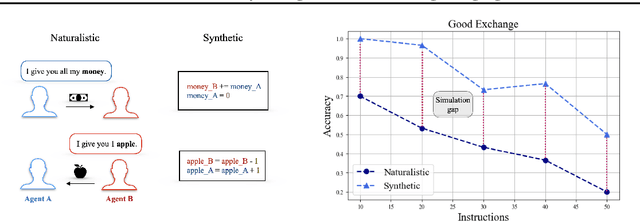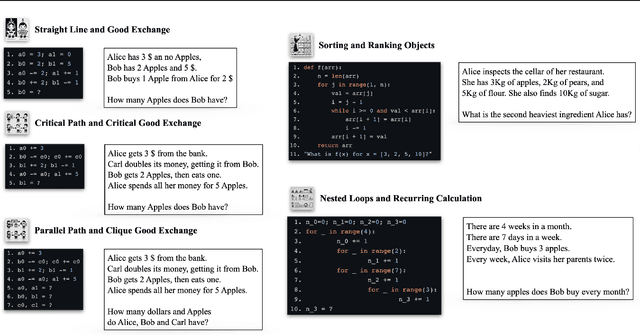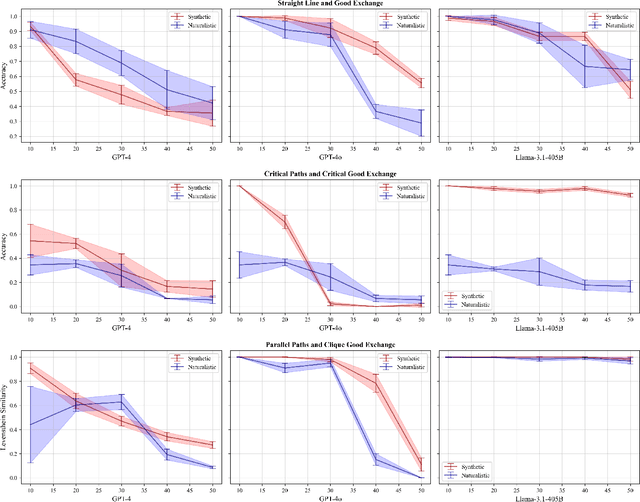Orazio Torre
Code Simulation as a Proxy for High-order Tasks in Large Language Models
Feb 05, 2025



Abstract:Many reasoning, planning, and problem-solving tasks share an intrinsic algorithmic nature: correctly simulating each step is a sufficient condition to solve them correctly. We collect pairs of naturalistic and synthetic reasoning tasks to assess the capabilities of Large Language Models (LLM). While naturalistic tasks often require careful human handcrafting, we show that synthetic data is, in many cases, a good proxy that is much easier to collect at scale. We leverage common constructs in programming as the counterpart of the building blocks of naturalistic reasoning tasks, such as straight-line programs, code that contains critical paths, and approximate and redundant instructions. We further assess the capabilities of LLMs on sorting problems and repeated operations via sorting algorithms and nested loops. Our synthetic datasets further reveal that while the most powerful LLMs exhibit relatively strong execution capabilities, the process is fragile: it is negatively affected by memorisation and seems to rely heavily on pattern recognition. Our contribution builds upon synthetically testing the reasoning capabilities of LLMs as a scalable complement to handcrafted human-annotated problems.
Code Simulation Challenges for Large Language Models
Jan 21, 2024



Abstract:We investigate the extent to which Large Language Models (LLMs) can simulate the execution of computer code and algorithms. We begin by looking at straight line programs, and show that current LLMs demonstrate poor performance even with such simple programs -- performance rapidly degrades with the length of code. We then investigate the ability of LLMs to simulate programs that contain critical paths and redundant instructions. We also go beyond straight line program simulation with sorting algorithms and nested loops, and we show the computational complexity of a routine directly affects the ability of an LLM to simulate its execution. We observe that LLMs execute instructions sequentially and with a low error margin only for short programs or standard procedures. LLMs' code simulation is in tension with their pattern recognition and memorisation capabilities: on tasks where memorisation is detrimental, we propose a novel prompting method to simulate code execution line by line. Empirically, our new Chain of Simulation (CoSm) method improves on the standard Chain of Thought prompting approach by avoiding the pitfalls of memorisation.
 Add to Chrome
Add to Chrome Add to Firefox
Add to Firefox Add to Edge
Add to Edge